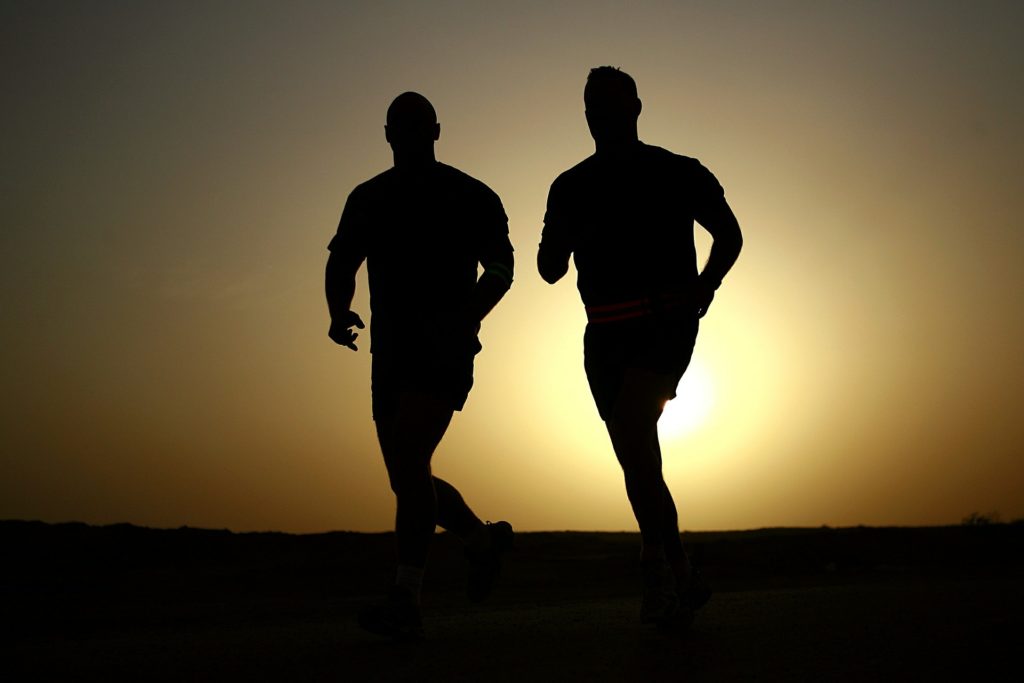
I don’t know about you, but when I am stuck with a problem I seem to bounce around probing every possible solution until I can finally crack the conundrum. It doesn’t always seem to work though. Very often I spend far longer than I needed to and became far more frustrated than I needed to be had I only asked for help.
It can be incredibly hard to slow down and realize my need for help before I get knee deep in a task. Yet this very same shift towards “inviting others in” is crucial for sexual addiction recovery.
The Influence of Denial
You have probably heard by now that denial is common in the addicted population. Also common is excuse making—most addicts don’t really want to give up their comfort without a fight. It is common to hear those with sexual addiction say something like about accountability:
- I can do this on my own
- It not such a big deal if I slip up, it’s normal, I’d be wasting their time
- I really don’t need to change this, but I’ll give it a go anyway
- No one will support me
- It is weird to call someone up, or meet with them. No one wants to hear about this.
- I don’t really have any feelings around acting out.
Most of these simply aren’t true, and all of them are distortions. If you find yourself with these or similar excuses, ask yourself “what am I afraid of, or offended by about recovery that values relationships?”
Who should I use?
It should be no surprise that it can be hard to find an accountability partner if you are isolated or resistant to making changes. You have to be proactive and find someone to help you. Many people are far more willing (even grateful to help) than you might expect.
Firstly, you should never use a spouse or partner for accountability because they are likely to take too much responsibility or be deeply hurt recurrently. You should however remain honest with a spouse or partner but within a different context.
An accountability partner “should be someone of the same sex, who is wise, loving and tough, and who doesn’t struggle with sexual behaviors as you do.” They should have demonstrated to you that they are trustworthy and will respect your struggle. If they are likely to undermine your sense of engagement in any way you should not ask them to help you.
 What should I do with my accountability partner?
What should I do with my accountability partner?
Start by asking the person you had in mind to talk with you. Share your situation and your struggle. If they are reacting faithfully, openly and acceptingly of you, go on to ask them if they will do the following with you: (If they react poorly, aren’t willing, or struggle themselves, find someone else.)
- Hold you accountable for your behaviors. (You will need to share current problem behaviors with them and be specific).
- Give you encouragement. It can be slow progress at times and you need a boost.
- Listen to you when you are struggling and confused.
- Model good healthy sexuality to you.
- Be willing to problem solve with you when you need help.
The process of using your accountability partner:
- Call them everyday to check in and get in the habit of talking.
- Be real and honest.
- Share your feelings with them.
- State lustful thoughts and temptations that have been in your awareness.
- Confess where you haven’t maintained the boundaries you have set up.
- Be specific about precise things they can ask you to keep you in check.
- Celebrate with them as you make progress.
The Importance of Groups
Whilst accountability can be done solely with individuals, the vast number of recovery groups available speaks to the importance of this modality. There are 12 step and other groups out there. The biggest benefits of belonging to a group is having a supportive community that can validate the struggle, fill in when you can’t connect to your accountability partner, and help you develop your relational skills.
Action Steps
To help you get activated in finding an accountability partner, use this simple step-by-step guide.
- Pick an accountability partner from your support network.
- Contact them and set up a time to meet so that you can discuss your desire for them to support you.
- Find a local support group. You can do this through an Internet search, and then by contacting individual organizations that lead the groups.
 Aim to attend group/s at least twice a week to start. It is preferable to attend everyday if you are struggling to make progress in recovery.
Aim to attend group/s at least twice a week to start. It is preferable to attend everyday if you are struggling to make progress in recovery.- Check with yourself if you are following through on these plans.
- Check with yourself if your accountability partner is following through in supporting you. If not, speak with them about your needs from the relationship.
- Make a list of contacts you can reach out to incase your can not connect with your accountability partner.
Community Discussion – Share Your Thoughts Here!
How has accountability helped you in your addiction recovery journey?
 About the author: Paul Loosemore, MA PLPC, author of “21 Movements Towards Life” – The step-by-step guide to recovering from sexual addiction or pornography. Paul works as a mental health counselor, and consults with those who wish to recover from Sexual Addiction—both individuals and couples. He is the founder of www.stopsexualaddiction.com where you can find his guide, or contact him.
About the author: Paul Loosemore, MA PLPC, author of “21 Movements Towards Life” – The step-by-step guide to recovering from sexual addiction or pornography. Paul works as a mental health counselor, and consults with those who wish to recover from Sexual Addiction—both individuals and couples. He is the founder of www.stopsexualaddiction.com where you can find his guide, or contact him.
References:
[1]: Loosemore, Paul. (2016) 21 Movements towards life guide. www.stopsexualaddiction.com
The opinions and views of our guest contributors are shared to provide a broad perspective of addictions. These are not necessarily the views of Addiction Hope, but an effort to offer discussion of various issues by different concerned individuals.
We at Addiction Hope understand that addictions result from a combination of environmental and genetic factors. If you or a loved one are suffering from an addiction, please know that there is hope for you, and seek immediate professional help.
Reviewed By: Jacquelyn Ekern, MS, LPC on February 8, 2017.
Published on AddictionHope.com
